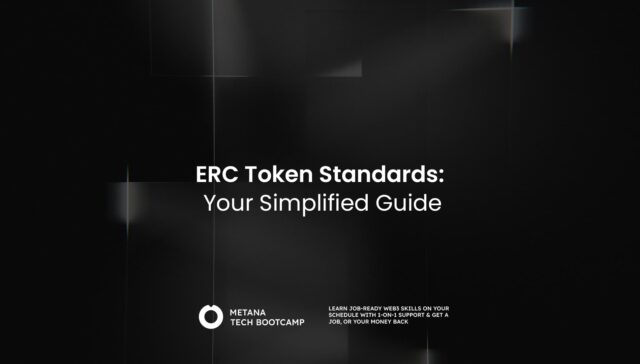Smart contracts, the self-executing code on blockchains, have revolutionized various industries. From decentralized finance (DeFi) to supply chain management, their potential is undeniable. However, with great power comes great responsibility. Since smart contracts operate autonomously, even minor vulnerabilities can lead to large financial losses. This is where smart contract audits come in.
A smart contract audit is basically a deep check of the code to find any bugs, security weaknesses, or ways to make it run more efficiently. This article provides a comprehensive checklist to guide developers and project owners through the smart contract auditing process.

Before the Audit: Preparation is Key
1. Gather Documentation:
A smooth audit begins with proper documentation. Compile all relevant documents, including:
- Smart Contract Code: Provide the complete, well-commented codebase.
- Functional Specifications: Clearly outline the intended functionality of the smart contract. This helps auditors understand the expected behavior.
- Test Cases: Existing unit and integration tests demonstrate the project’s commitment to code quality and provide a reference point for the audit.
- Dependency Information: List any external libraries or contracts the smart contract relies upon.
2. Choose a Reputable Auditor:
Selecting the right auditor is crucial. Look for firms with:
- Proven Track Record: Research the auditor’s experience with similar projects and blockchain platforms.
- Security Expertise: Ensure the team possesses in-depth knowledge of smart contract vulnerabilities like reentrancy, integer overflows, and access control issues.
- Transparency: Choose an auditor who provides detailed reports outlining identified issues and recommendations.
3. Understand the Audit Scope:
Clearly define the audit’s scope. Will it focus solely on security or delve into gas optimization and code best practices? Knowing this helps manage expectations and ensures a focused audit.
During the Audit: A Deep Dive into the Code
1. Code Review:
The auditor will carefully examine the code in great detail for:
- Security Vulnerabilities: This includes identifying common pitfalls like reentrancy attacks, integer overflows, Denial-of-Service (DoS) vulnerabilities, and access control issues.
- Logical Errors: Auditors will check for code inconsistencies that could lead to unintended behavior.
- Coding Best Practices: They will assess adherence to established secure coding practices for Solidity or other smart contract languages.
- Gas Optimization: The audit can identify code sections with potentially high gas consumption, recommending ways to reduce costs for users.
2. Testing and Fuzzing:
Beyond static code review, auditors often employ:
- Unit Testing: They may review existing unit tests and potentially write new ones to comprehensively test all functionalities.
- Fuzz Testing: This involves bombarding the contract with random data to uncover unexpected behavior or edge cases.
3. External Dependencies:
The audit will evaluate the security of any external libraries or contracts the smart contract interacts with. Vulnerabilities in these dependencies can also pose risks.
After the Audit: Addressing Issues and Moving Forward
1. Audit Report Analysis:
Carefully review the audit report. It should detail:
- Identified Issues: The report should clearly outline each vulnerability discovered, its severity level, and potential consequences if exploited.
- Recommendations: The auditor will suggest solutions for fixing the vulnerabilities and improving overall code security.
2. Prioritization and Remediation:
Prioritize identified issues based on their severity level (critical, high, medium, low). Develop a plan to address the critical and high-risk issues promptly.
3. Re-testing and Re-deployment:
Once vulnerabilities are addressed, re-test the smart contract thoroughly using unit and integration tests. Upon successful testing, the updated contract can be deployed.
4. Ongoing Maintenance and Security:
Security is an ongoing process. Consider periodic re-audits, especially after significant code changes, to maintain a robust security posture.
Additional Considerations for a Robust Audit
Code Clarity and Readability:
Well-commented, well-structured code is easier to audit, reducing the risk of misunderstandings and increasing audit efficiency.
Decentralized Auditors:
Some projects opt for decentralized auditing services, leveraging the expertise of a distributed community. While promising, this approach is still evolving and may lack the structured reporting and accountability of traditional audit firms.
Continuous Integration/Continuous Delivery (CI/CD):
Integrating automated security checks into the development pipeline can help identify and fix vulnerabilities early on, making the audit process more efficient.
Smart Contract Insurance:
While not a substitute for a thorough audit, smart contract insurance can provide some financial protection in case of unforeseen vulnerabilities.
Conclusion: Smart Contract Auditing
Smart contract audits are like security checks for blockchain apps, making sure they are safe and reliable. By following the comprehensive checklist provided, developers and project owners can ensure their smart contracts are robust, secure, and ready to build trust in the decentralized world. Remember, a secure smart contract is the foundation for a successful blockchain project.

FAQs
What is smart contract auditing?
- Smart contract auditing involves reviewing the code of blockchain-based contracts to ensure they are secure and function as intended.
Why is blockchain security important?
- Blockchain security protects transactions, maintains user trust, and prevents financial losses due to hacks or fraud.
What are common vulnerabilities in smart contracts?
- Common issues include reentrancy attacks, overflow errors, and improper access controls.
How can you improve blockchain security?
- Employ robust encryption, regular audits, and use updated and secure coding practices.
Who performs smart contract audits?
- Specialized cybersecurity firms and independent auditors with expertise in blockchain technology typically conduct these audits.
What is blockchain technology?
- Blockchain is a decentralized digital ledger that records transactions across multiple computers to ensure security and transparency.
How does blockchain affect businesses?
- Blockchain offers enhanced security, reduces operational costs, and provides a transparent environment for transactions.
What are the benefits of smart contracts?
- Smart contracts automate processes, reduce the need for intermediaries, and increase transaction speed and trust.
How do cryptocurrencies use blockchain?
- Cryptocurrencies rely on blockchain to record transactions securely and to prevent fraud and double-spending.
What future trends are expected in blockchain security?
- Trends include the integration of AI in security protocols, increased regulatory oversight, and development of more resilient encryption methods.







